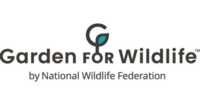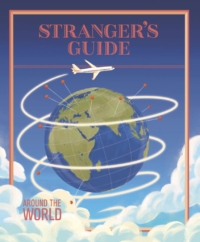
Over the next few months, most of my blog posts will focus on the book I’m writing with Patricia Shafer, Peace is a Verb, the Alliance for Peacebuilding’s (AfP’s) Peacebuilding Starts at Home initiative, or both.
We will be unrolling the initiative over the course of the next few months, but it has already helped shape our book by deepening the data base for the chapter that we will be calling the peacebuilding pivot.
Our field has grown tremendously since I took my first steps toward becoming a peacebuilding professional in the early 1980s. Nonetheless, for a host of reasons that I don’t have time to get into here but did write about in 2021, we will not be able to produce anything like the paradigm shift I’ve been ranting about for decades unless and until we work with activists who focus on the issues of the day that actually lead people to become active in the first place—climate change, racial injustice, economic inequality, health care, immigration, and more.
These individuals and organizations do not think of themselves primarily as peacebuilders, if they do so at all. To my delight—and a bit to my surprise—a number of them have reached out to me in recent weeks because they are coming to see that their work overlaps with ours and want to work together.
I’d like to claim that we have systematically developed a strategy that has us systematically reaching out to a group of systematically chosen organizations. Maybe that happens in some organizations that define and follow a rigorous theory of change. If so, I’ve never been a member of one.
It certainly hasn’t happened here. Our strategy—actually it doesn’t come close to deserving that pompous sounding a title—is almost completely reactive. All of the organizations that you are about to meet reached out to us after I got to know them. While have nurtured a couple of these relationships over the last few years; some of the more promising ones have come to us only in the last few weeks.
We have also developed most of those relationships with organizations that focus on economics. Race relations, climate, public health, and the like have mostly entered our discussions because of the ways those issues shape the connection between peacebuilding and economic inequality.
Because most have come to AfP through my personal networks, I’m asking myself what will happen when our whole team does begin building these kinds of partnerships in a more intentional way.
In other words, we have barely scratched the surface.
To give you a sense of how limited my thinking has been and how open we are to trying new approaches, I had envisioned them all as bilateral relationships that connects AfP to each organization separately. However, the youngest person I’ve been work with has gotten me to think about building a network or networks of them from the beginning so that our relationships can connect as many dots as quickly as possible.
Aviva Lund’s suggestion brought me back to the idea of catalytic convening that my childhood friend Dick O’Neill and I developed before his deteriorating health forced him to retire. Based on his twenty-five years of experience with the Highlands Forum (see below), we will bring together potential partners who did not know each other to explore areas of common interest (convening). Unlike what he did, however, we would help them develop projects that they could do together and incubate projects that cross issue-based or ideological silos (catalytic).
I’m not particularly worried by the limited steps we’ve been able to take so far. We will get beyond economics and my personal connections sooner rather than later. To use the language of startups, our goal for the moment is simply to demonstrate “proof of concept.”
Not all of them are going to pan out. That stands to reason given what we know about startups in general. Whether they take the form of restaurants or NGOs, most only last a few years—if that. The key is to learn from the results—the failures as well as the successes.
Economic Partners
We have begun discussions with more than ten organizations. Let me illustrate the possibilities by focusing, first, on the six that all include the economy in their remit and have progressed beyond the simple getting-to-know-you phase.

Zebras Unite I met the Zebras early in the pandemic and have been working with them ever since. They are many things—a movement, a thought leader, and a cooperative business. All of their initiatives revolve around creating the culture, capital, and community for a new economy, especially one that benefits women, people of color, and other underserved communities. They bet a lot of their future on the coop, which will almost certainly have to close its doors in the next few months. They will survive in some form, mostly likely as both a movement and a network of local activists. I have a vested interest in their survival. And, they’ve given me my favorite title of all time, one I don’t want to give up—fairy godfather we didn’t know we needed.

SuperCrowd. I met Devin Thorpe at about the same time. In this decade, he has pivoted his own work to focus on the opportunities provided the JOBS Act of 2012 to promote social change by helping people use Regulated Crowd Funding to invest in startups. Most are small, locally based businesses like the ones that the Zebras promote. Other can be rather large that, like Garden for Wildlife (see the next paragraph), have chosen to use crowd funding to supplement other sources of investment capital.

Garden for Wildlife was recently spun off from the National Wildlife Federation. It is a for-profit business that only sells plants that are indigenous to the community their customer lives in. It is creating an ecosystem of growers, distributers, and gardeners that will improve the health of local ecosystems, combat climate change, and more—including restoring community cohesion through its partnerships with civil society organizations. I met its CEO, Shubber Ali, through Devin, and we are now making plans to do everything from using Garden for Wildlife’s platform as a fundraising tool of existing nonprofits to actually building locally based coalitions of people who come together over gardening and protecting their local ecosystems even if they disagree on “hot button” political issues.
![]()
Community Wealth Builders. In my last post, I discussed the surprisingly vital social change networks in Baltimore. The people I met were initially surprised when I referred to them as peacebuilders when they typically thought of themselves as building community wealth and empowerment. Once I described peacebuilding from an economic perspective, Stephanie Geller of Community Wealth Builders immediately saw the connection. Our work has been slowed by the fact that she is involved in discussions about the Key Bridge disaster, we are looking for ways of working together in Baltimore as it rebuilds and beyond.

New Economic Paradigm for People and Planet is a project of ProSocial which, as a whole, will work with AfP, the Zebras, and others. As its name suggests, it is developing a new and more appropriate economic model that stresses long-term sustainability, cooperation, and the like while building support for it among economists, business leaders, and the population as a whole. ProSocial was founded by (among others), David Sloan Wilson whose work as an evolutionary biologist I had read over the years. This initiative is both laying out the parameters for a series of alternatives to mainstream, neoliberal economics and building support for them.
![]()
Optimal Work is a very different kind of organization which I met when I got an email out of the blue from one of its young staff members, Aviva Lund. The organization was founded by psychiatrist who teaches Cognititive Behavioral Therapy at Harvard Medical School who realized that he could have a bigger impact by helping people who cannot afford or might not need professional mental health care. It provides a variety of tools that help its clients literally optimize their work potential through a package that includes training in mindfulness, reframing, and other skills that helps them meet the many challenges work brings with it today.
Other Initiatives
Although I haven’t been as systematic in this respect, here are three organizations that focus on other issues first, although do include economics, too.

Stranger’s Guide is (sort of) a travel magazine that explores the power of place-based journalism to break down stereotypes and foster global citizenship. It has worked closely with AfP since its foundation in 2018 because it includes peacebuilding as one of its journalistic goals (and because one of its founders, Abby Rapoport) is the daughter of one of my oldest friends). Abby has already participated in a number of peacebuilding events, and she has included peacebuilding themes in more and more of the magazine’s print and online initiatives.

Nursha defies simple description. Founded by force-of-nature Shalonda Ingram, the easiest way to define it is to use its own terms, it “co-create experiences and opportunities for True Do-Gooders to deliver their offerings with flavor while generating adequately from Our Collective Talent.” We met because Shalonda is co-lead for the Zebras’ Washington chapter. We are just beginning to explore ways we could work together to, for instance, repurpose underused church buildings (and, at times their endowments) for developing community wealth. More generally, we will explore ways of using the arts and technology to reach networks that AfP does not normally, reach, including the LGBTQ+ and Nativie American communities.
Rotary does not specialize in peacebuilding. Instead, most of its local clubs concentrate their work on its other areas of focus. Thus, I have been sitting in the weekly meetings held by an ad hoc group of senior Rotarians in the Porland (OR) area that addresses racial healing in a city whose history since George Floyd’s murder is as troubled as any. The group has done a remarkable job of listening to community needs and has reached out entrepreneurs in underserved communities and done what it could to empower them. How, I wonder, could its work be adapted for use in other American cities? By Rotarians? Others?
The Bottom Line
We know we have a long way to go.
What, I ask, can AfP do to help networks like those in Baltimore? Or spread them to other communities?
We have begun creating plans and projects with each of these organizations. We would love to add more. And raise the money to hire staff members to help turn plans into action.
So, if you have any suggestions, let me know.
The views and opinions expressed in this article are those of the author and do not necessarily reflect the official policy or position of the Alliance for Peacebuilding or its members.
